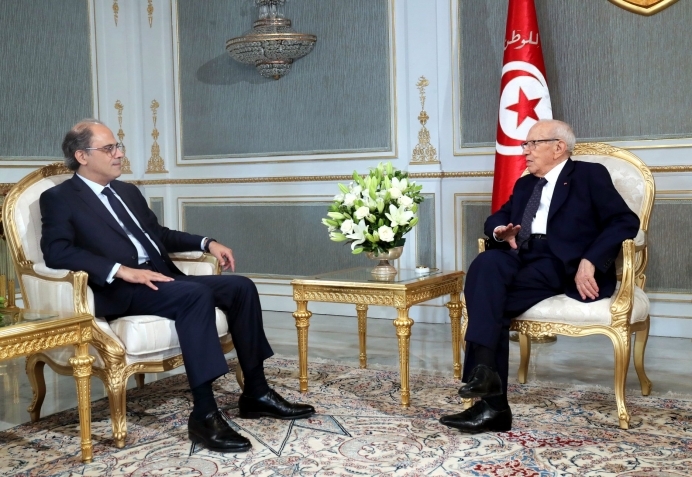Tunis – The foreign direct investment (FDI) flow in Tunisia reached TND 1.142 billion (USD 431.43 million) in the year’s first six months, a 17.7% hike over the same period of last year, according to a report shown by the Foreign Investment Promotion Agency (FIPA). The information was published this Thursday (19) by news outlet Tunis Afrique Presse (TAP).
Investments in the energy sector went up 6.3% over 2017’s first six months to TND 526 million (USD 198.7 million), while the industry sector received TND 403 million (USD 152.2 million), up 21.6% in the same comparison.
The services sector received TND 137.8 million (USD 52 million), a surge of 54.5% against the first six months of last year. Agriculture was the destination for TND 5.85 million (USD 2.21 million), a 134.2% climb in the same comparison.
Still according to TAP, the director of the International Monetary Fund (IMF) for the Middle East and Central Asia, Jihad Azour (left in the picture above), said this Thursday, in Tunis, that the country had positive indicators in the first six months. The executive met with Tunisian president, Beji Caid Essebi (right in the photo above).
He added that this is an encouragement for Tunisia’s international partners to continue to support the country’s democratic experience and its economic reforms program, and that the IMF believes in Tunisia’s ability to overcome local and external challenges.
Essebi declared, according to TAP, that Tunisia’s challenges will only be conquered with economic growth, job creation, social protection to the vulnerable, skills development for young people and stability to attract foreign investments.
In an interview to TAP, Azour said the country had a gradual improvement in the reforms program established with the IMF, with the reduction of the fiscal deficit and positive indicators in some sectors and in exports, but that this is still not enough and that the process needs to gain some momentum.
He advised for a strong focus on the hike of oil prices, which could impact the fiscal balance, and the inflation rate, and argued for the continuity of the reforms. Azour said that, in the medium and long-term, the country should diversify its energy sources to reduce its reliance on fossil fuels.
Translated by Sérgio Kakitani




